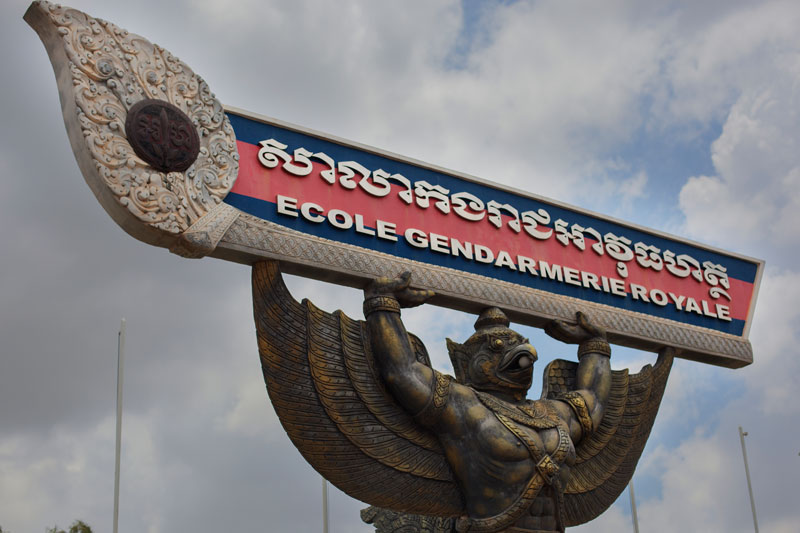In its latest published accusation of public graft, the Anti-Corruption Unit (ACU) on Wednesday posted to its website anonymous claims that the heads of the National Military Police’s training center in Phnom Penh had been taking hefty bribes to secure enrollment, promotions and other benefits.
According to the claims, Major General Oeur Savorn, director of the Military Police Training School in Dangkao district, and Major Thav Van, his subordinate and chief of staff, would take between $250 and $500 to promote officers to ranks from second lieutenant up to major.

The pair is also accused of taking $10 to provide military identity cards, between $1,000 and $2,000 to secure spots at the training school, and $3,000 to set someone up with a regular military police salary under the name of an absent, retired or “ghost” officer.
True to form, the ACU also published summaries of the replies from the accused, who defended themselves and rejected the claims.
“Since [Maj. Gen. Savorn] took office, he has approved promotion requests from chiefs, deputy chiefs and other officials with the military police in compliance with their roles and time. But they were made in line with the meetings of the school’s leadership, and money was never demanded in exchange for promotions,” the summary said.
The general also denied taking bribes to enroll students.
In his own defense, Maj. Van said that he was in no position to secure promotions and that his unit did not sell the salaries of officers to others. He also denied taking bribes to make military identity cards, adding that they charged only 10,000 riel to 15,000 riel, or about $2.50 to $3.75, to process the paperwork.
The accused could not be reached for comment. Military Police spokesman Eng Hy, however, defended the officials and called the claims against them “baseless.”
“The response [to the ACU] is enough to prove they are innocent,” he said. “So nothing like that happened.”
The ACU regularly posts anonymous accusations and accompanying rebuttals online, publishing at least 10 this month alone.
ACU chairman Om Yentieng said Wednesday that the unit posts the accusations in the hope of inducing the accusers to provide additional information and evidence.
“We want to get a reaction from the complainants,” he said. “With the response [of the accused], we think the complainant can give us more evidence and we can continue to exchange responses.”
Mr. Yentieng did not explain why the exchanges were not handled privately.
“When we see that we do not have enough clues, we put the case to the side. But if we see we have enough clues, we record it on the list, open an investigation and build a lawsuit,” he said.
The chairman explained that cases that lacked evidence for an investigation were not closed, however, and that only the courts could shut down an ACU case for good.
“For complaints that are not fully qualified, we ask the accused person to give a response, and we collect witnesses in order to build a foundation for making a conclusion about whether or not it is a case of corruption,” he said.
“For some complaints, they provide very clear clues, so we don’t need a response and we open an investigation.”